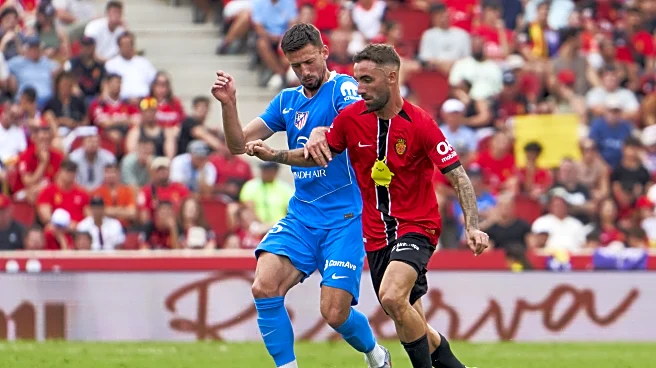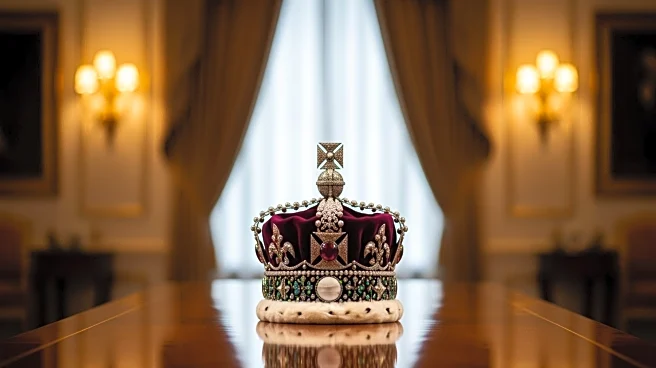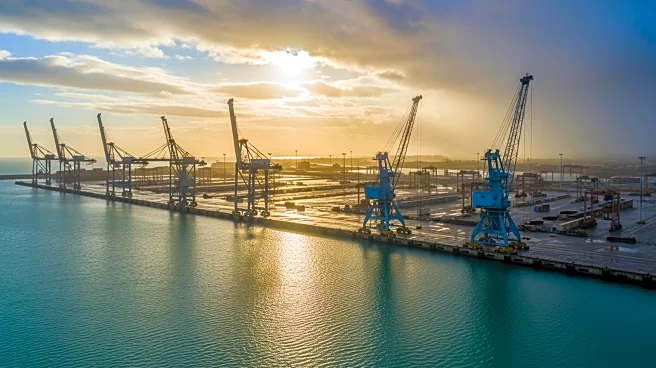Atlético Madrid failed to kick on from the Villarreal result last week, and failed to bounce back from the Champions League defeat to Liverpool midweek. Despite an impressive start and dominant patches throughout, Atlético ultimately suffered a mini-capitulation after Alexander Sørloth saw red and a lapse in concentration allowed Vedat Muriqi to cancel out Conor Gallagher’s opening goal.
Promising signs were negated by worrisome signs at Son Moix, as Atlético languish in 12th after five rounds. Let’s
explore:
A fluid and coherent team, almost
Before everything went to pot around the 72nd minute, this was actually the first game this season where I felt almost everyone and everything was in sync, and thus, Atlético were playing in an impressive, completely fluid way (except maybe the centre-back in left-back situation.)
The additions of Nico Gonzalez in left-midfield and Giacomo Raspadori as Julián Alvarez’s strike partner seemed to be helpful, temporary though they may be as Thiago Almada and Álex Baena continue to recover from injuries. Raspadori in particular fills me with so much optimism because he seems like the perfect foil for Alvarez, who did not have the best of days in front of goal today. But the plethora of chances he had was very promising, a few of which were facilitated by the movement and linkup play of Raspadori.
Atlético, especially in the first half, were exposing the rigid Mallorca low block. They made the hosts shuffle side to side unceasingly, and gaps emerged as the Bermellones tried to keep up. Koke and Pablo Barrios kept it ticking, while Giuliano and Nico’s direct dribbling carved up the flanks, helping Alvarez and Raspadori find nifty little spaces in the congested centre to cause chaos. It was beautiful.
The only question mark hanging over the situation was the twinge of dread I could not help but feel regarding the centre-back situation. I did not feel as comfortable as I should have regarding protection from possible Mallorca counter attacks. Clément Lenglet does not have the acceleration to cover these kind of attacks, and Robin Le Normand does not have the aggression to stomp out these situations before they can really emerge.
Instead, Mallorca came back into the game not through counter-attacks, but through sustained pressure after Atlético surrendered the game to them. It was almost a carbon copy of the Espanyol game last month, especially if Mallorca had scored again to make it 2-1; had the game gone on for another two minutes, the hosts would have won.
As things stand, I would like to see Raspadori partner Alvarez over Sørloth and Antoine Griezmann, but this depends on various fitness issues of all players involved — including Baena, who will play, and play a lot, when he returns after a prolonged absence through injury and illness. Perhaps he will be moved back to left-midfield where he shone so brightly for Villarreal. It is perhaps a positive headache for Simeone to deal with.
The turning point(s)
The turning point of this game was the red card Alexander Sørloth picked up in the 72nd minute. Although the game still stood 0-0 at this point, and even though Atlético took the lead shortly afterward, the loss of control either side of this moment is the reason Atlético are heading home with yet more points dropped to a team in the lower reaches of LaLiga.
Espanyol, Elche, Alavés, and now Mallorca: all games in which Atlético have taken the lead and then found a way to surrender the result, as well as their dominance on the pitch in most instances. This is now an obvious and specific pattern, although perhaps it has been this way for a while, dating back a few years. Though conditioned by a red card this time, the ‘shut up shop’ approach continuously falls flat, especially in comparison to Simeone’s early years. I am not suggesting this is a product of Simeone’s diminishing coaching abilities, but simply not having world-class defenders anymore.
The second turning point was Muriqi’s thunderous header to equalise. It was a well-crafted goal in the grand scheme of football, but in terms of Simeone and Atlético’s standards of defending, it was an unbelievably cheap and poor goal to concede: a simple out-swinging cross from the left found the unchallenged Muriqi, whose calling card for forever has been his aerial ability. He evaded Lenglet and Dávid Hancko, the latter left completely static on the play. It all felt so docile from the Colchoneros.
Football comes down to micro-decisions on the pitch. A single second where a defender’s brain waves can fluctuate slightly and go into a passive stand-by mode can be the difference between an entire fan base going home happy, or a manager left tearing his hair out. It’s why we love it. It’s why we hate it.
But the facilitation of the erroneous micro-decisions comes down to macro decisions from the higher-ups. Atlético have had a long time to try to rediscover and replace what we had under Diego Godín and João Miranda, under Juanfran Torres and Filipe Luís. The majority of defenders signed since the end of this era have came nowhere close to reaching those levels.
I would argue that although Atlético have seemingly suffered many dramatic turning points which have led to the disappointing results this season — such as the penalty conceded at Alavés, the Rafa Mir-led counter-attack for Elche, and today, the lapse in concentration which led to Muriqi’s header — these are merely reflections of a larger-scale, longer-term deterioration in the club’s recruitment strategy. These moments have not really been dramatic shocks to the system in the way they first feel, once you take a step back and realise how we truly got here.
A battle for top 6?
I am sure most fans’ expectations were not a title fight this season, despite the summer expenditure, and it seems as if this is completely out the window already; Atlético are nine points adrift of Real Madrid, even at this early stage.
I am assuming that most people’s expectations were top four, as this would be totally reasonable and totally usual. But without trying to be overly pessimistic, I am starting to seriously consider whether Atlético are running the risk of finishing outside the top four for the first time since 2011/12. This is if things continue how they are, which is a big if.
A reason for my pessimism is that this feels like the first time in recent years where I have seen Atlético struggle to this extent, continuously, against this calibre of opponent. Atlético are shedding through their “easy game tokens” fast, with all due to respect to the clubs they have faced. How will they fare against those with slightly bigger budgets and more reputable squads — such as Celta Vigo, Real Sociedad, Real Betis and Athletic Bilbao, let alone Real Madrid and FC Barcelona?
Looking at the league table, it doesn’t look good even when trying to remain conscious of the fact it’s only five games in. Atlético now lie in 12th place on six points from five games. The gap to Villarreal and Espanyol in the Champions League places is only four points, so things are not completely disastrous as of yet; Atleti even have head-to-head over Villarreal, pending an encounter at La Cerámica later this season.
But this Atlético team still has so much to prove in terms of getting gritty in the smaller stadiums, and staying composed in the bigger ones. As things stand, we looked better at both these elements last season, but surely Atlético won’t be the type of club to spend around £150 million and get worse…right?
















